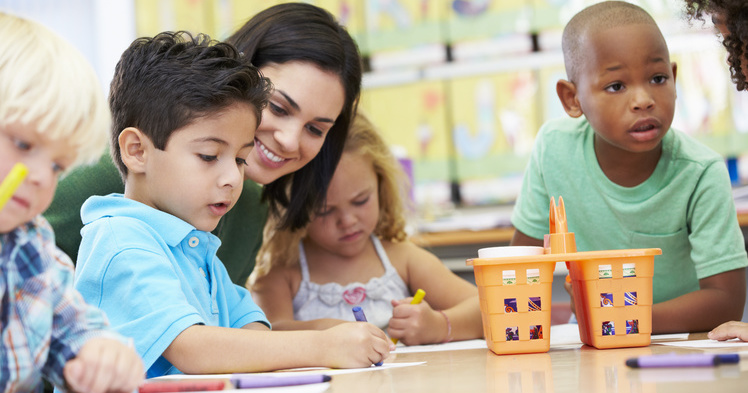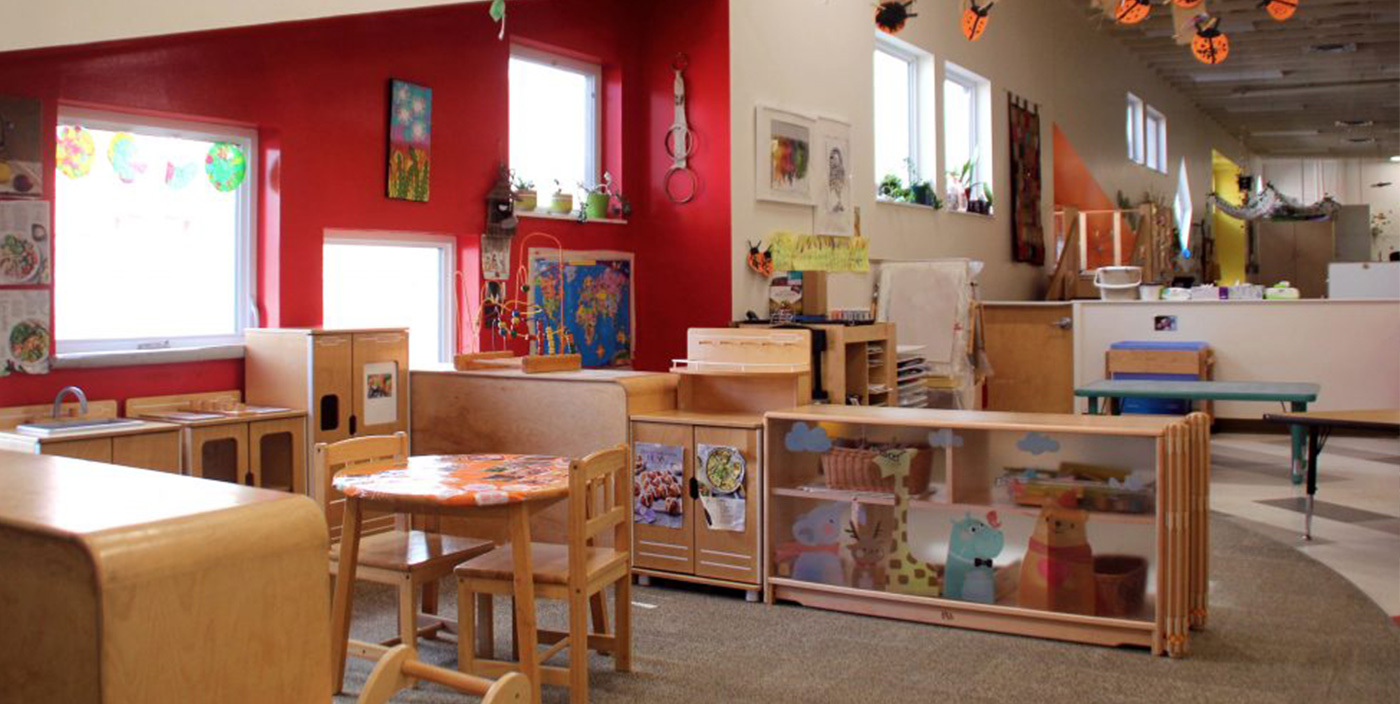The Function of Childcare in Cultivating Your Young child's Cognitive and psychological Abilities Through Organized Play and
The function of daycare in nurturing a toddler's emotional and cognitive growth is frequently undervalued, yet it functions as a pivotal environment for organized play and . Through carefully created experiences and communications, caretakers promote vital skills such as emotional recognition and problem-solving. These fundamental elements not only enhance a kid's ability to connect with peers but additionally foster resilience and versatility in various situations. Understanding the subtleties of exactly how these dynamics unravel increases important inquiries concerning the long-lasting effect of early day care experiences on personal development and social combination. What might that mean for future growth?
Significance of Organized Play
Structured play is an important part of toddler growth, as it provides a structure whereby kids can engage in significant communications and discovering experiences. This kind of play is deliberately made to foster different developing skills, such as cognitive, social, and physical capacities. By taking part in organized activities, young children discover to adhere to rules, take turns, and comply with peers, all of which are essential for their interpersonal abilities.

Moreover, structured play often includes educational elements, such as counting, shade recognition, and language growth, effortlessly integrating finding out into enjoyable activities. This strategy not only records young children' attention however also enhances important principles in an enjoyable way. Overall, structured play contributes in promoting a well balanced development, outfitting young children with the fundamental skills essential for future learning and social communications.
Emotional Development in Childcare
Day care settings play an important duty in cultivating emotional development in young children. These setups give youngsters with chances to connect with caregivers and peers, helping with the advancement of crucial social-emotional abilities. Through regular interactions, toddlers learn to acknowledge and share their feelings, such as frustration, joy, or sadness, which is vital for their psychological maturation.

In addition, the structured atmosphere of childcare allows kids to experience a range of feelings in a safe area. They learn to handle sensations of splitting up anxiety when transitioning from home to day care and create resilience as they navigate new partnerships and experiences. In general, the emotional advancement promoted in daycare not just benefits toddlers throughout their developmental years yet likewise lays the groundwork for healthy social connections and psychological wellness throughout their lives.
Cognitive Skills Through Tasks
Through taking part in a range of activities, toddlers in daycare settings can dramatically enhance their cognitive skills. Structured play and educational jobs are vital in promoting cognitive development, as they offer chances for exploration, analytical, and vital thinking. Activities such as challenges, foundation, and memory video games challenge toddlers to think artistically and logically, cultivating essential abilities like spatial recognition and pattern acknowledgment.
Additionally, interactive storytime sessions motivate language advancement and comprehension. By paying attention to stories, young children learn to refine details and involve their creativities, which improves their narrative skills and vocabulary. Additionally, hands-on tasks entailing crafts and arts promote fine motor skills while additionally urging self-expression and creative thinking.
Sensory play, such as sand or water tasks, enables toddlers to experiment with various structures and materials, promoting inquiry-based learning. These experiences not only enhance cognitive capacities however also infuse a feeling of curiosity concerning the globe around them - daycare for infants near me. Generally, the diverse variety of cognitive activities given in day care environments plays an essential role in forming a toddler's capacity to think seriously, solve troubles, and engage meaningfully with their environments
Social Links and Interaction
In a caring atmosphere, kids naturally build social connections and take part in communications that are important for their interpersonal and psychological development. Day care setups provide a special opportunity for kids to connect with peers, promoting crucial social skills such as sharing, teamwork, and problem resolution. These interactions help young children find out to browse their emotions and understand the viewpoints of others, which are vital parts of psychological intelligence.
With structured play and group tasks, kids are urged to communicate their thoughts and feelings, improving their verbal skills and advertising empathy. Involving with peers also introduces them to varied social standards and actions, enhancing their understanding of social characteristics. Consistent communication with other kids aids to construct a feeling of community, providing a support system that is helpful for emotional growth.
As kids participate in joint tasks, they find out the significance of teamwork, patience, and arrangement. These fundamental social skills are essential as they prepare for future partnerships, both in academic settings and past. Eventually, the social connections created in day care play a considerable role fit a young child's ability to interact favorably and successfully with others throughout their lives.
Role of Caretakers in Growth

Caretakers play an essential function in promoting young child advancement, especially in the context of the social interactions they experience in daycare settings. These specialists provide a caring setting where young children can explore their emotions and cognitive abilities via structured play and . By taking part in meaningful conversations, caretakers sustain language advancement and improve social skills.
Moreover, caretakers design psychological reactions and appropriate actions, assisting toddlers find go now out compassion and dispute resolution. Their presence additionally produces a sense of safety and security, which is important for children to with confidence explore their surroundings and involve with peers.
Along with social and psychological support, caretakers contribute in carrying out academic curricula that advertise cognitive growth - toddler daycare near me. They introduce age-appropriate activities that promote interest, critical thinking, and analytical abilities. This structured technique makes sure that toddlers not only appreciate their play but also gain fundamental knowledge crucial for future knowing
Inevitably, the quality of caretaker interactions read review dramatically impacts a young child's total advancement. By promoting a supportive and appealing environment, caretakers aid prepare for healthy psychological and cognitive growth, equipping kids with essential skills for their long-lasting trip.
Conclusion
In final thought, childcare works as an important setting for cultivating cognitive and emotional advancement in young children. Via structured play and educational tasks, kids experience significant development in their capacity to recognize and express emotions, establish important assuming abilities, and kind essential social connections. The role of caregivers contributes in assisting in these experiences, making certain that each youngster advantages from a nurturing ambience that advertises long-lasting emotional wellness and cognitive development.
The function of day care in nurturing a toddler's cognitive and emotional advancement is commonly undervalued, yet it offers as an essential atmosphere for structured play and educational tasks. On the whole, structured play is crucial in advertising a Recommended Site balanced development, gearing up toddlers with the fundamental abilities needed for future discovering and social interactions.
Daycare environments play an essential duty in cultivating emotional development in kids. On the whole, the psychological development cultivated in day care not only benefits toddlers throughout their developmental years however also lays the groundwork for healthy and balanced social relationships and psychological wellness throughout their lives.
With structured play and group tasks, young children are encouraged to connect their thoughts and sensations, improving their verbal abilities and promoting empathy.